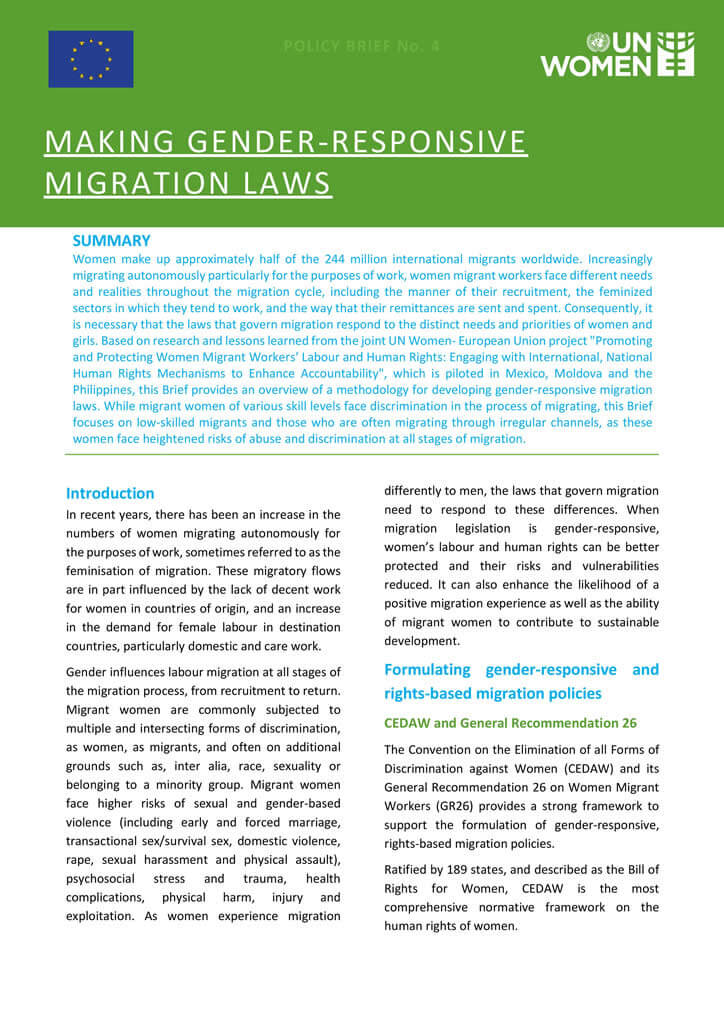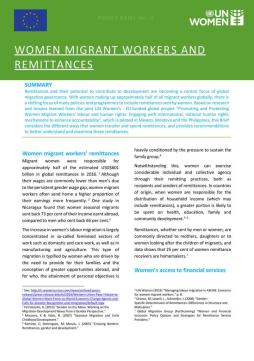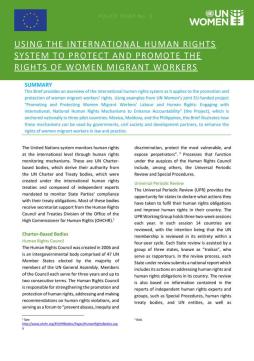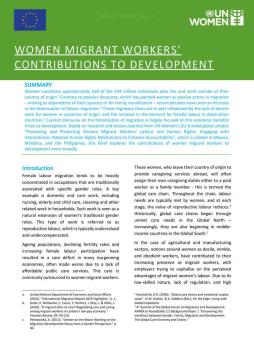Making gender-responsive migration laws
Women make up approximately half of the 244 million international migrants worldwide. Increasingly, migrating autonomously particularly for the purposes of work, women migrant workers face different needs and realities throughout the migration cycle, including the manner of their recruitment, the feminized sectors in which they tend to work, and the way that their remittances are sent and spent. Consequently, it is necessary that the laws that govern migration respond to the distinct needs and priorities of women and girls.
Based on research and lessons learned from the joint UN Women–European Union project, “Promoting and protecting women migrant workers’ labour and human rights: Engaging with international, national human rights mechanisms to enhance accountability”, which is piloted in Mexico, Moldova and the Philippines, this brief provides an overview of a methodology for developing gender-responsive migration laws. While migrant women of various skill levels face discrimination in the process of migrating, this brief focuses on low-skilled migrants and those who are often migrating through irregular channels, as these women face heightened risks of abuse and discrimination at all stages of migration.









